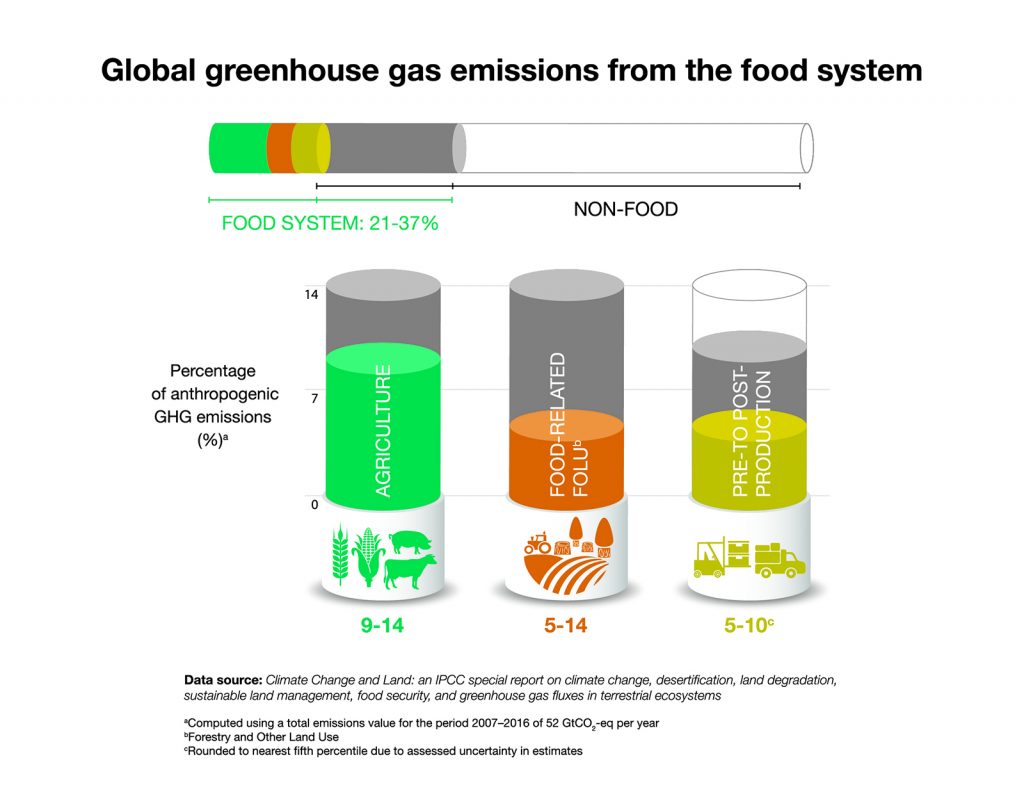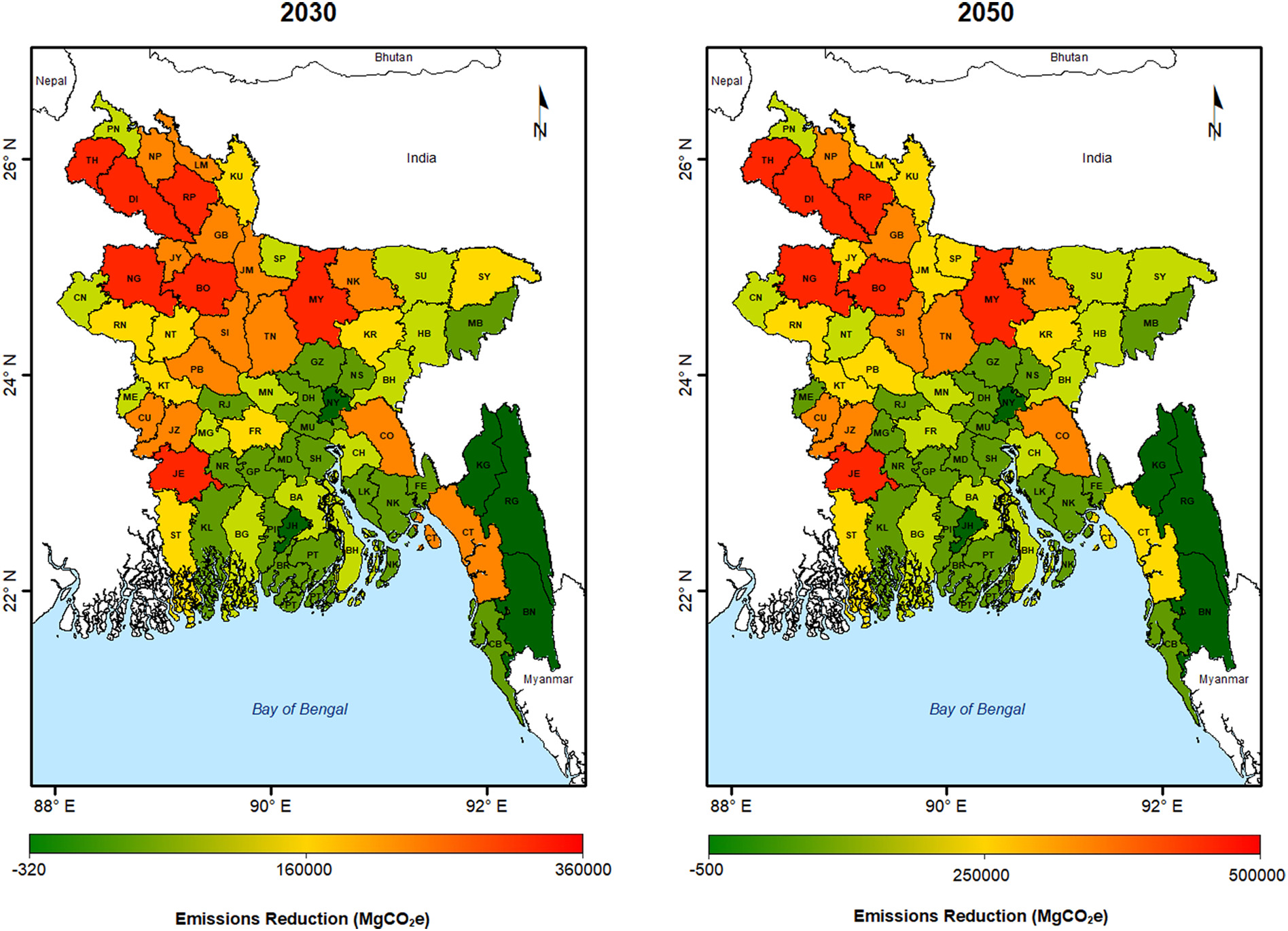Global schemes to fight climate change may miss their mark by ignoring the “fundamental connections” in how food is produced, supplied and consumed, say scientists in a new paper published in the journal Nature Food. Global bodies such as the Intergovernmental Panel on Climate Change (IPCC) and the UN Framework Convention on Climate Change (UNFCCC), handle the different components of the food system separately. This includes crop and livestock production; food processing, storage and transport; and food consumption. Scientists argue this disjointed approach may harm strategies to reduce food emissions and safeguard food from climate impacts, and that a “comprehensive” and “unified” approach is needed.
Food and climate change are deeply interlinked, but food emissions need to be tracked beyond the “farm gate,” that is, beyond the emissions arising from growing crops or raising livestock. Researchers are uncovering new insights on how the different subcomponents of the food system contribute to climate change mitigation and adaptation. They argue that we must understand how these components work together — or clash in some cases — in order to effectively address agriculture in a changing climate.
 Read more:
Read more:
Rosenzweig C et al. 2020. Climate change responses benefit from a global food system approach. Nature Food.

 Climate adaptation and mitigation
Climate adaptation and mitigation 


